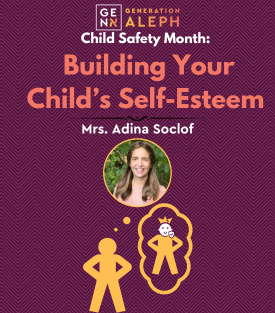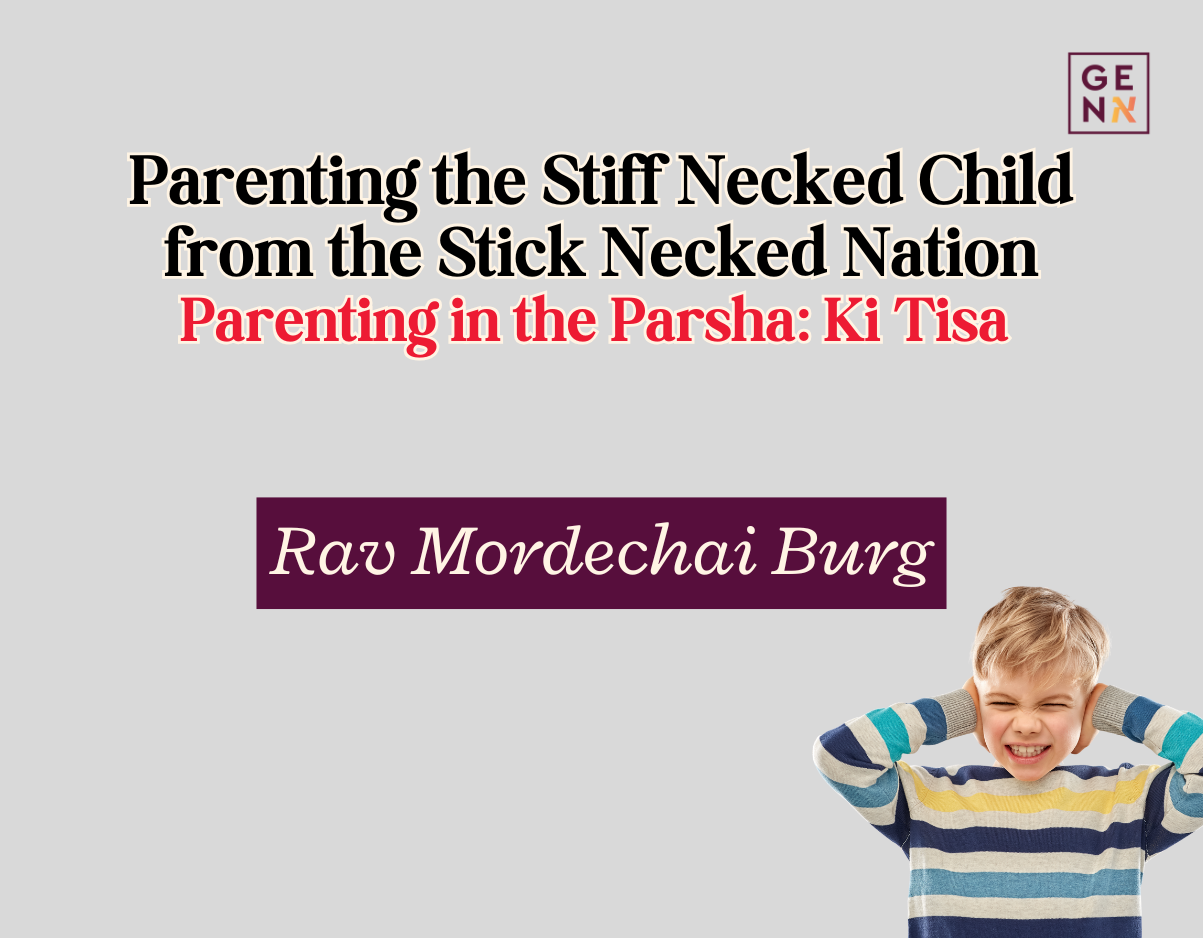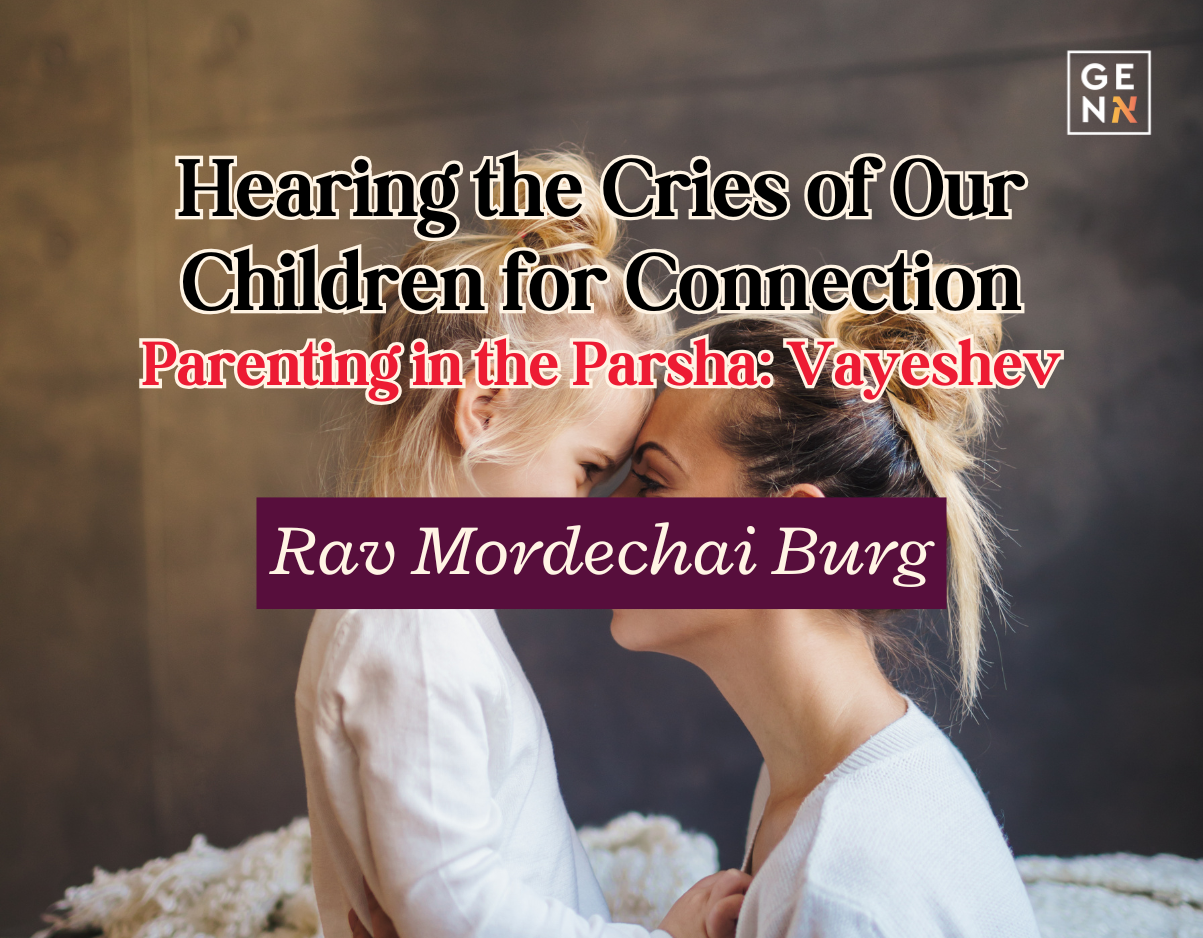With Hashem’s help we have already gleaned so many invaluable Chinuch lessons from the Sugya of Ben Sorer U’Moreh. Let us once again delve into the waters of this beautiful Parsha so that we may continue to reap its rewards.
כִּי־יִֽהְיֶ֣ה לְאִ֗ישׁ בֵּ֚ן סוֹרֵ֣ר וּמוֹרֶ֔ה אֵינֶ֣נּוּ שֹׁמֵ֔עַ בְּק֥וֹל אָבִ֖יו וּבְק֣וֹל אִמּ֑וֹ וְיִסְּר֣וּ אֹת֔וֹ וְלֹ֥א יִשְׁמַ֖ע אֲלֵיהֶֽם
If a man has a wayward and rebellious son, who does not obey his father or his mother, and they chasten him, and [he still] does not listen to them (Devarim 21:20)
Notice that in the beginning of the pasuk the father of the Ben Sorer is called an אִ֗ישׁ, a man, and only later in the Passuk when it comes to obeying his directives is he referred to as אָבִ֖יו, the boys father. What could the Torah be communicating to us?
Baruch Hashem, we live in a generation with unprecedented wealth and creature comforts. Our standard of living has risen dramatically and with it sacrifices must be made. For most families in our community a dual income is necessary just to get by. Through no fault of our own we are simply not around for our children as much as they were in previous generations. I am always astounded by the Rambam’s suggested schedule[1] for learning Torah – three hours of work and nine hours of learning. Today one would be hard pressed to find a job that is actually nine to five let alone three hours! When we factor in going to Minyan three times a day, our own personal learning and some well-deserved and frankly very much needed rejuvenation it is so difficult for us to spend time with our children as balanced and attentive parents. Being an emotionally attuned parent is already an enormously difficult task and with the myriad of stressors we confront throughout our daily lives parenting can feel so overwhelming.
And yet, children need us to be parents. A father must take responsibility to provide for his family but that is him being a man, not a parent. We must not conflate these terms. I myself have gotten frustrated when my children don’t listen to my instructions. I have expressed to them how painful it is given how hard I work to provide for them. I felt it was a lack of gratitude and that’s not a bad Chinuch lesson for children to learn. But providing for my family does not make me a parent, it fulfills my responsibilities as a man. Children obey the directives of parents. When we invest time into being balanced and attentive parents our children respond in kind.
Why is this? The world is a vulnerable place for children. Some children have their weaknesses highlighted in the classroom. Others struggle with social belonging. Our children are growing up in a world with instant feedback, constant assessment and the never-ending gaze of social media. It’s rough out there for kids (and adults but that’s an article for a different time). Like ships searching for a port in a storm, our children are looking for a safe haven. They turn to us as parents for attachment – a place where they have a deep sense of belonging and unconditional positive regard. This goes far beyond providing for their physical needs. Our paycheck may pay the mortgage, but it does not make a home.
Allow me to share with you the following poignant story. In the course of a shiur, we had discussed the benefits and drawbacks of attending Pesach programs. One young man expressed that for his family Pesach was potentially very stressful. Both mom and dad worked and the cooking, cleaning etc… brought a very negative energy to the home. After years of being home they finally decided to go on a Pesach program and for them it was much more enjoyable. Additionally, because they all went away together this young man expressed that he had much more time with his parents then he would otherwise. After shiur, one of the Talmidim asked if he could meet with me privately. Sadly, he had the exact opposite experience. He grew up going to Pesach programs. Mom and dad worked and saw the program as an opportunity for a well-deserved vacation. Whereas other children would come back telling stories about their Pesach Seder, his Seder in a crowded dining room did not have a unique family feel. He related that his parents would ship him off to the program’s camp during the day and he had very little time with them. When he was younger, he thought he was having the best time but as he got older, with the lack of quantity and quality time, the gap between him and his parents grew larger and larger. With tears in his eyes, he asked if was even possible at eighteen years old to build a relationship with his parents. While his parents provided for all his physical needs and then some, he felt completely estranged from them. And while he was exceptionally grateful for the life they had given him, he described a home where there were no family dinners, no games played with each other, no banter or comradery. He came home from school, grabbed something from the fridge and went straight to his room. I asked what his Shabbos table was like. “It’s just awkward. No one really has anything to say to each other.” On the outside, this was a very popular young man. He came from a family of means and was an elite athlete. Everyone thought he had it all. But in private he acknowledged that he felt like there was a gaping hole – he felt like he did not have parents.
Peer attachment is important to a child, but nothing can replace the need for parental attachment. Even with all of his popularity, inside he was still a little boy who wanted to spend time with his parents. In contrast, I had the opportunity last year to meet with a truly special set of parents. Mom and dad took their son to Israel to visit a variety of Yeshivas so that together they could make a determination which one would fit him best. As these visits have become increasingly common, I have had the opportunity to sit with hundreds of parents and their children. I can share with you that the dynamic and feel in the room is always different. In this particular case, there was clearly a tremendous amount of love and respect in the room. The way the parents spoke with each other. The way they spoke about their son. They way the son spoke about his parents. I was blown away by the closeness they clearly felt towards one another. The young man chose to apply to our Yeshiva, and I ended up giving him his entrance Bechina. That night his team had a basketball game and as I was leaving the school, I popped into the gym to check out the scene. One of the Rabbeim present commented to me that this young man’s parents were in the stand to root their son on. Offhandedly he said, “I don’t think they’ve ever missed one of his games.” I was only able to stay for a couple minutes of the game but if I am being honest, I had one eye on the game and one eye on these parents. I watched as his parents jumped to their feet when their son scored. Their pride in their son was self-evident. And that’s when I began to understand what I felt in the room that day. The warmth I experienced had clearly been built over many years. The time they spent as parents (not just as providers) to their children flourished into a beautiful relationship with their child.
If we are to be successful in raising healthy and well-adjusted children, children who will follow in our footsteps and become the next link in the chain, then we must spend time with them as parents. The Ben Sorer U’Moreh refuses to listen when his parents chastise him not because he is bad but because he is asking, where have you been? It is as if he is saying, yes you have been a man but I needed you to be dad as well. His inappropriate behavior is his way of expressing the pain he feels by not having healthy adult attachment in his life. Work-life balance is so exceptionally difficult to manage and yet we must continue to do our very best to make the quality and quantity time that our children need.
[1] Talmud Torah 1:12
Rav Mordechai Burg is the Menahel of Mevaseret, Mashpia of NCSY Summer, Mashpia of Nitzotzos, author of Nitzotzos on Chumash and a senior Rebbe at Tomer Devorah and Bnot Torah Institute. His shiurim can be found on Nitzotzos.com.
Submit your questions
"*" indicates required fields











